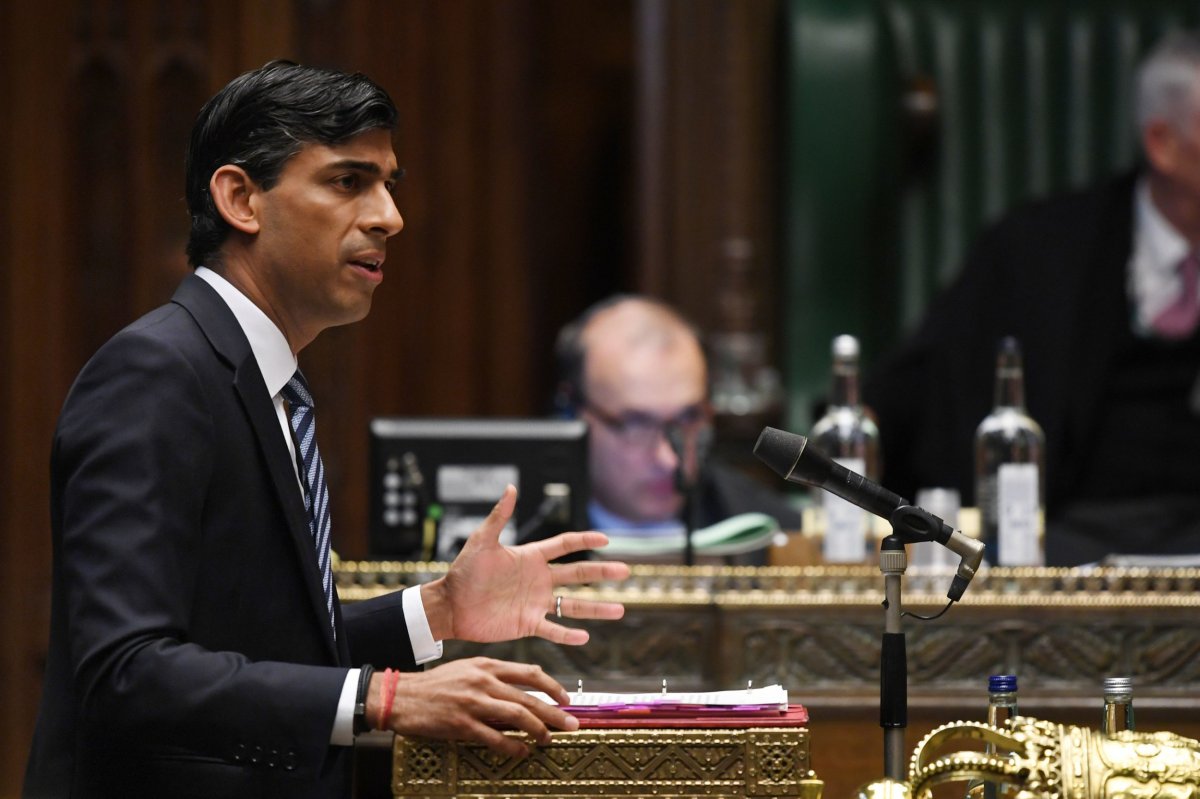This long-read article was written by Adam Zhang for the Northeastern University London essay competition, and received a finalist position.
Estimated read time of essay: 12 minutes
Before we can answer the question, it is important to first understand what the law is. Laws are defined by the Collins Dictionary as “a rule or set of rules, enforceable by the courts, regulating the government of a state, the relationship between the organs of government and the subjects of the state, and the relationship or conduct of subjects towards each other” [1]. Laws define the political, economic and social factors of the environment we live in.
So what is the purpose of such pieces of legislation?
An important reason for why it exists is that it protects basic human rights through the legal system. When charged with an offence, before any proceedings, a citizen is guaranteed a public hearing before an independent and impartial tribunal, and is entitled to access legal representation, and will be granted the presumption of innocence, which is the maxim of “innocent until proven guilty”. They cannot be unlawfully detained or arrested and are guaranteed a trial to determine their innocence, or guilt. As a result, it is made certain that citizens are treated fairly, since power can be given to the accused to contest the state/prosecution’s decisions effectively in a trial, which means that they can only be prosecuted if they had solid reason and evidence to do so. Such rights are enshrined in the Human Rights Act 1998 (HRA), which merged the European Convention of Human Rights with British law, with Article 6, the right to fair trial, and Article 5, the right to liberty and security [2]. Thus, a basis is provided for the individual to uphold and defend their position against unfair treatment, whether it may be infringements on other articles of the HRA, such as the prohibition of torture and slavery and the freedom of expression, as well as on other areas of law such as criminal, employment and family law, no matter the circumstances.
The Human Rights Act is a fundamental example of the importance of law, but there is also another key function, namely maintaining the economy. According to John Maynard Keynes [3], the government has the responsibility to maintain economic growth and low unemployment. Therefore, it needs the law to do so. This can be achieved using taxation, made mandatory under the law by statute such as the Finance Acts[4]. The subsequent tax revenues contribute to the government budget maintaining the public sector, which employs around 1/6 of the UK workforce [5], including nurses and police officers, but also the maintenance of key infrastructure, like ports, airports and motorways. Additionally, it can be used to help businesses in less economically developed areas, in the form of subsidies. An example of such policy would be the government’s new “levelling up” scheme, which plans to allocate £3.1 billion pounds [6]to communities across the country to help them recover after the Covid-19 pandemic, under Section 50 of the UK Internal Markets Act [7]. Although it could be argued that sometimes these funds are allocated inefficiently, with the recent strike action over pay being a prime example [8], the law is nonetheless vital in maintaining the government’s ability to help the economy, since without taxes the government would have no funds for wages in the first place.
However, the economy is only one facet of society in which the law must be implemented – the political aspect is also tremendously important. This is because laws protect the parliamentary democracy that gives power to the people to make important decisions, rather than a small collective of individuals. Arguably one of the most crucial pieces of legislation in this regard would be the Bill of Rights 1689 [9], which laid down the foundations of our modern parliamentary system. It removes the power of the monarch to levy tax and to issue excessive fines or punishments, as well as most importantly to stop them from suspending or making laws without Parliament’s approval. The Act also safeguards freedom of elections, the freedom of speech of MPs in debate and proceedings and the right to petition the government. This way, power is given to parliament, to run the country in the interest of the people, without the fear of interference from undemocratic elements such as the monarchy or the military. And so, the law is critical in providing a voice for ordinary citizens. Without it, we would not have a say in the most decisive political flashpoints, such as Brexit, the cost-of-living crisis [10] or the windfall tax on energy companies [11].
Finally, it cannot be ignored that the law stands up for the individual as well. There is plenty of public legislation protecting citizens’ civil rights, such as the Race Relations Act 1965 [12], which outlawed discrimination based on “grounds of colour, race, or ethnic or national origins”, or the Representation of the People Act 1928 [13], which gave votes for women, as well as the 1967 Sexual Offences Act, which “decriminalised” homosexual acts [14], though gay marriage was not to be legalised until the passing of the Marriage Act 2013 [15]. On top of this, the law also provides regulation of private, domestic affairs. Such was the case of R V R [16], where in 1991, the House of Lords ruled that it was illegal under English criminal law that a husband could rape his wife. The defendant had attempted to appeal his conviction on the grounds of an imaginary “marital rape exemption” under common law but was rejected by the Court of Appeal. One of the court judges, Lord Chief Justice Lane, stated that “a rapist remains a rapist subject to the criminal law, irrespective of his relationship with his victim”, and described the grounds of appeal as “common law fiction” [17]. Hence, it was removed as part of the Criminal Justice and Public Order Act 1994 [18].
Therefore, these points lead to a theoretical answer – citizens must always obey the law. If it provides civil liberties, maintains the economy and protects our human rights as well as our democracy, then it seems in our best interest to do so, as not only do we help ourselves, but the whole of society as well.
However, the case of Gard and Others V United Kingdom highlights a key limitation of the law. It demonstrated that in some situations, obedience to legislation transcends political, economic, or human rights justifications, because sometimes there is simply no better outcome whether the law is obeyed or not.
Charlie Gard, a young infant, was born on the 4th August 2016, with a rare mitochondrial disease, MDDS. It meant that he could not respire properly or use his arms or legs – he relied on a ventilator at all times, meaning that he was required to stay at Great Ormond Street Hospital, where care could be provided. In January 2017 began suffering deadly seizures, and his doctors felt that it was time to end his life support and begin palliative care, to the opposition of his parents. For them, there was still hope of Charlie’s survival – they had consulted an American neurologist named Michio Hirano, who was working on a potential cure named nucleoside therapy. However, Dr Hirano felt the chances of success were only a “theoretical possibility” [19], owing to the treatment’s highly experimental nature.
Charlie’s parents were not willing to give up on young Charlie’s life, and so the case was brought to the High Court by GOSH. They ruled in favour of GOSH, citing the Children’s Act 1989 [20], with Section 1 stating that the “child’s welfare shall be the court’s paramount consideration”, or in other words, because it was in Charlie’s best self-interests to not receive the nucleoside therapy, as its experimental nature may cause more harm than good. The case was then subsequently brought to the Court of Appeal, then Supreme Court, until finally it reached the European Court of Human Rights, where the decision of the High Court was upheld each time [21]. On the 27th of June 2017, Charlie was moved to hospice, and on the following day his mother declared that he had passed away [22].
Though the law had been obeyed, the result was extremely polarizing for many [23]. Even though placing Charlie into palliative care may have been the best way forward for him, it could be argued that the decision should have been up to his parents. It makes perfect sense if they did not wish to follow the guidance of the courts, as it would be emotionally shattering to give up the life of their child, especially if there was even the smallest chance of recovery.
But no system is perfect, and it goes without saying that with all the benefits that the law can bring, it is undeniable that as a country, we must still obey the law. If the government or the people did not uphold the law and went against the Human Rights Act or NHS Act 1946 [24], Charlie’s parents would not have been able to contest their decision in a court of law for such a long time, and GOSH wouldn’t have had the funding from tax revenues to keep Charlie alive on a ventilator. If you disagree with a law, you should not disobey it – from R V R, we can see that laws can be changed, but only using correct procedure like using the rights that the law gives you to argue your case in court or for example, by creating a petition to get an amendment passed through parliament. This way, the order of society is respected, and as aforementioned, not only the individual but the whole of society has something to gain.
- https://www.collinsdictionary.com/dictionary/english/law#:~:text=law%20in%20British%20English&text=noun-,1.,2
- https://www.legislation.gov.uk/ukpga/1998/42/schedule/1
- https://www.imf.org/external/pubs/ft/fandd/2014/09/basics.htm#:~:text=Keynes%20argued%20that%20inadequate%20overall,and%20buys%20from%20foreign%20countries).
- https://www.legislation.gov.uk/ukpga/2022/3/enacted
- https://www.ons.gov.uk/employmentandlabourmarket/peopleinwork/employmentandemployeetypes/datasets/employmentbyindustryemp13
- https://searchforuksubsidies.beis.gov.uk/scheme/?scheme=SC10773
- https://www.legislation.gov.uk/ukpga/2020/27/section/50/enacted
- https://www.theguardian.com/uk-news/2023/jan/14/ambulance-workers-accuse-government-of-demonising-them
- https://www.legislation.gov.uk/aep/WillandMarSess2/1/2/introduction
- https://www.bbc.co.uk/news/topics/cljev4jz3pjt
- https://www.bbc.co.uk/news/business-60295177
- https://www.legislation.gov.uk/ukpga/1965/73/pdfs/ukpga_19650073_en.pdf
- https://www.parliament.uk/about/living-heritage/transformingsociety/electionsvoting/womenvote/case-study-the-right-to-vote/the-right-to-vote/birmingham-and-the-equal-franchise/1928-equal-franchise-act/
- https://www.legislation.gov.uk/ukpga/1967/60/pdfs/ukpga_19670060_en.pdf
- https://www.legislation.gov.uk/ukpga/2013/30/contents/enacted/data.htm
- https://www.bailii.org/uk/cases/UKHL/1991/12.html
- ibid.
- https://www.legislation.gov.uk/ukpga/1994/33/contents
- https://hudoc.echr.coe.int/fre#{%22itemid%22:[%22001-175359%22]}
- ibid.
- https://www.legislation.gov.uk/ukpga/1989/41/contents
- https://www.bbc.co.uk/news/uk-england-london-40752120
- https://www.nytimes.com/2017/07/28/world/europe/charlie-gard-dead.html
- https://www.legislation.gov.uk/ukpga/1946/81/pdfs/ukpga_19460081_en.pdf







